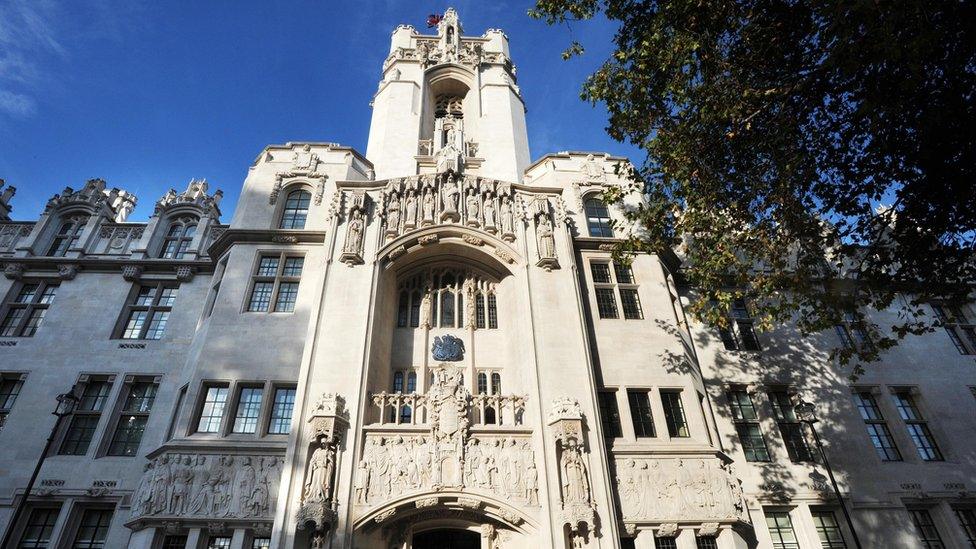Deportation of man with HIV to Zimbabwe blocked by UK Supreme Court
- Published

The deportation of a criminal to Zimbabwe has been stopped by the Supreme Court amid concerns his life would be shortened by HIV.
Five justices unanimously ruled the case must be reconsidered in full by immigration judges.
The offender has fought deportation for 14 years and won the reprieve after a decision in a similar case at the European Court of Human Rights.
The ruling changes UK law which previously allowed such deportations.
The 33-year-old offender, known only as AM, came to the UK as a teenager and since then has been convicted and jailed for serious offences, including battery and possession of a firearm. He is married to a British woman and they have a child.
Throughout his legal battle with the Home Office to remain, he has been receiving treatment with a specific anti-HIV drug that has stabilised his condition, but it is said not to be available in Zimbabwe.
During earlier stages, judges refused to stop his deportation because of long-standing case law in the UK that it was not a breach of human rights to send someone back to a country with poor medical services, if their life was not immediately in danger.
However, judges at the European Court of Human Rights later ruled that a deportation could be inhumane if the individual's life would be significantly shortened by the absence of suitable medical care for their condition.
In practice that meant someone with a potentially life-threatening medical condition could not be removed from a European country unless there was some assurance about the care they would receive.
That decision by the Strasbourg judges changed the previous position in human rights law - and AM argued that he could no longer be deported until evidence about Zimbabwe's health system had been fully considered.

How the courts relate to each other
The European Court of Human Rights (ECtHR) oversees the continent-wide laws that set minimum standards for the treatment of people
The UK is covered by the court, and it includes British judges
The Supreme Court can ignore a judgment from the Strasbourg-based court if there is a good legal reason why it contradicts the situation in the UK
Most UK cases concerning human rights issues are heard in British courts - very few are considered or even overturned by the ECtHR.

Ruling unanimously in his favour, external, five Supreme Court justices said that while they had the power to ignore the Strasbourg judgment because of the UK's existing law, they agreed with its decision.
They said the European Court of Human Rights had clearly modified the definition of unlawful and inhumane treatment for cases such as this deportation, and British courts must now take that into account.
That means that AM's deportation is now blocked until specialist immigration judges in a lower court examine detailed evidence about Zimbabwe and whether AM's life would be significantly shortened by a lack of appropriate care.
However, the UK government can win the case if it can show his condition can be adequately managed in Zimbabwe so that he does not develop full-blown Aids.
"This appeal requires the court again to consider one of the most controversial questions which the law of human rights can generate," said Lord Wilson.
"The reaction of many British citizens is likely to be, 'We don't want this man here'. His response is, 'But I need to remain here'.
A Home Office spokesperson said it was considering the implications of the ruling carefully.